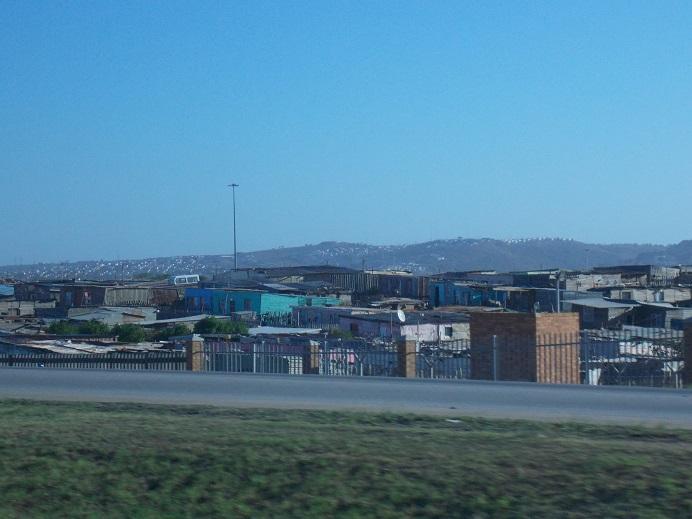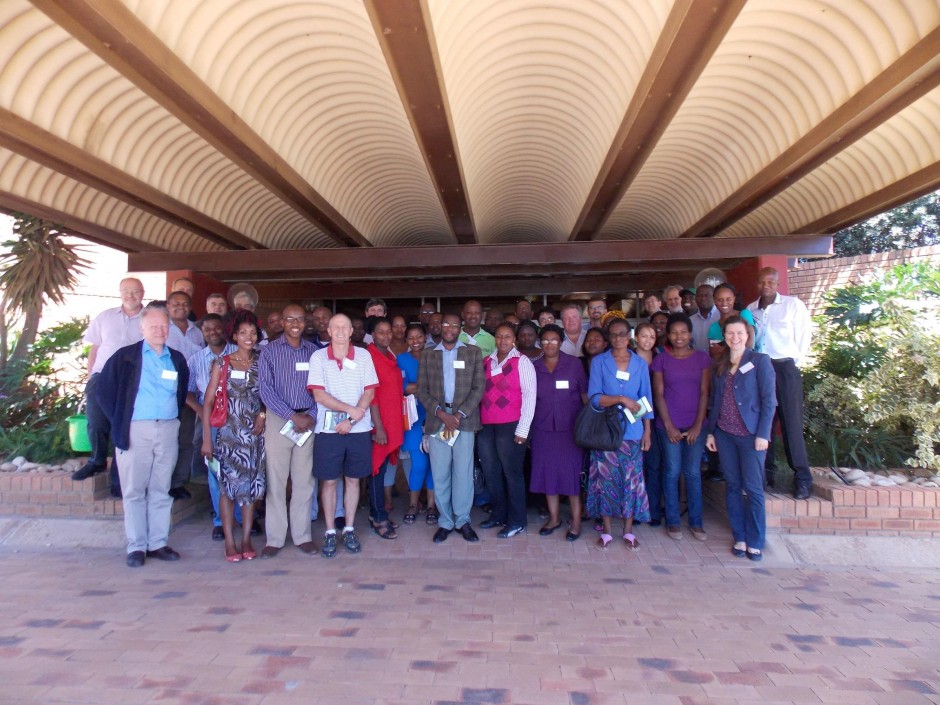Jane Robb is the EGU Educational Fellow and Director (Policy and Research) at www.unboxd.co.uk. She has also served on the GfGD Executive Committee since 2012, first as our Communications Officer and currently as University Group Resources Officer – helping to develop resources to equip our growing University Group network. Today she writes about her recent experiences in South Africa, and the lessons we can all learn from this.
The Africa Earth Observatory Network (or AEON for short) is an exciting and diverse organisation. Situated in the Nelson Mandela Metropolitan University (NMMU) in Port Elizabeth, South Africa (or PE to the locals) AEON is a refreshing blend of hard science and science for society in a continent that both combines a wealth of geological and cultural history and diversity.
I recently had the opportunity to visit NMMU in Port Elizabeth to carry out a teacher training workshop there in my capacity as Educational Fellow for the European Geosciences Union. This was a great experience where I got the chance to work with UNESCO, the European Space Agency and AEON to put together the workshop. The topic was Climate Change and Human Adaptation, a timely and relevant area for Africa and the world.
I came away with some really useful insights into the way everyday life, teaching and climate change intermix. In many African countries, including South Africa, people are aware that their daily practices are harming the environment. However, unlike in developed countries, these practices are essential to survival on a daily basis. The teachers simplified the issue: environment is directly linked to survival in this part of the world. If anything, this highlighted the need for these types of workshops to help teachers find different ways to engage the next generation with climate change, but in a way that means they can continue to develop.
In addition I was enlightened by the incredible need for a paradigm shift in the way we (as Europeans) think and educate about climate change in an African context, where the participants helped me to understand how to make the global, local. Climate change isn’t just a scientific issue, it is implicitly related to people, politics and survival. To engage children with climate change science, we need to develop a systems thinking approach balancing global responsibilities while maintaining healthy lifestyles and value the cultures and perspectives of the very people we are trying to engage.
Due to this paradigm shift in the way we need to approach the teaching of climate change – and broader geoscience topics in Africa – I was intrigued by the innovative steps forward AEON were making in this area. The isiXhosa word Iphakade deals with the concept of ‘observing the present and considering the past to ponder the future’. In the context of something AEON call Earth Stewardship Science – scientifically informed, ethical, democratic management of the physical and living systems of our planet – the Earth is a system, but so is our society. Our society is reliant on the Earth system and therefore has a responsibility to manage it. We therefore need to apply our appreciation of our culture and how it will change in the next 50 years to our understanding of how to manage the Earth system.

Many of the teachers at the workshop came from rural communities, where their learners’ survival is directly linked to the environment. Credit: Jane Robb
AEON has several programmes that use the concept of Earth Stewardship Science including Iphakade, their flagship pan African programme looking at natural and anthropogenic Earth system changes; Inkaba yeAfrica that is aiming to get to better grips with Earth systems, their scales and rates; Africa Alive Corridors that is documenting the geological, biological and cultural history of Africa and Earthwise that “explores and implements various pathways towards accelerated development and capacity building, public outreach and continuing professional development in matters of Earth Science and Society”.
I think that we can all learn from the approach that AEON is taking to African geoscience. The Geoparks that UNESCO are setting up across the world to bring forth links between geology and cultural heritage are already a great step forward in bringing the concept of Earth Stewardship Science to the rest of the world. In addition, the idea of linking a sense of ‘place’ to teaching and engaging people with geoscience is recognised more and more, with organisations in America like the Centre for Ecoliteracy providing content for teachers in this area and closer to home organisations such as Natural England already implementing programmes across England helping school children understand nature through their attachments to local places. The Economic and Social Research Council are collaborating with the Natural Environment Research Council by putting out a call for their new Valuing Nature funding programme.
How does your research affect people and place? Maybe this is something we can think about in more detail as geologists for global development. In this sector, science cannot just be about science and we need to find ways to engage with diverse communities of people about our work and the impact it will have on them.

